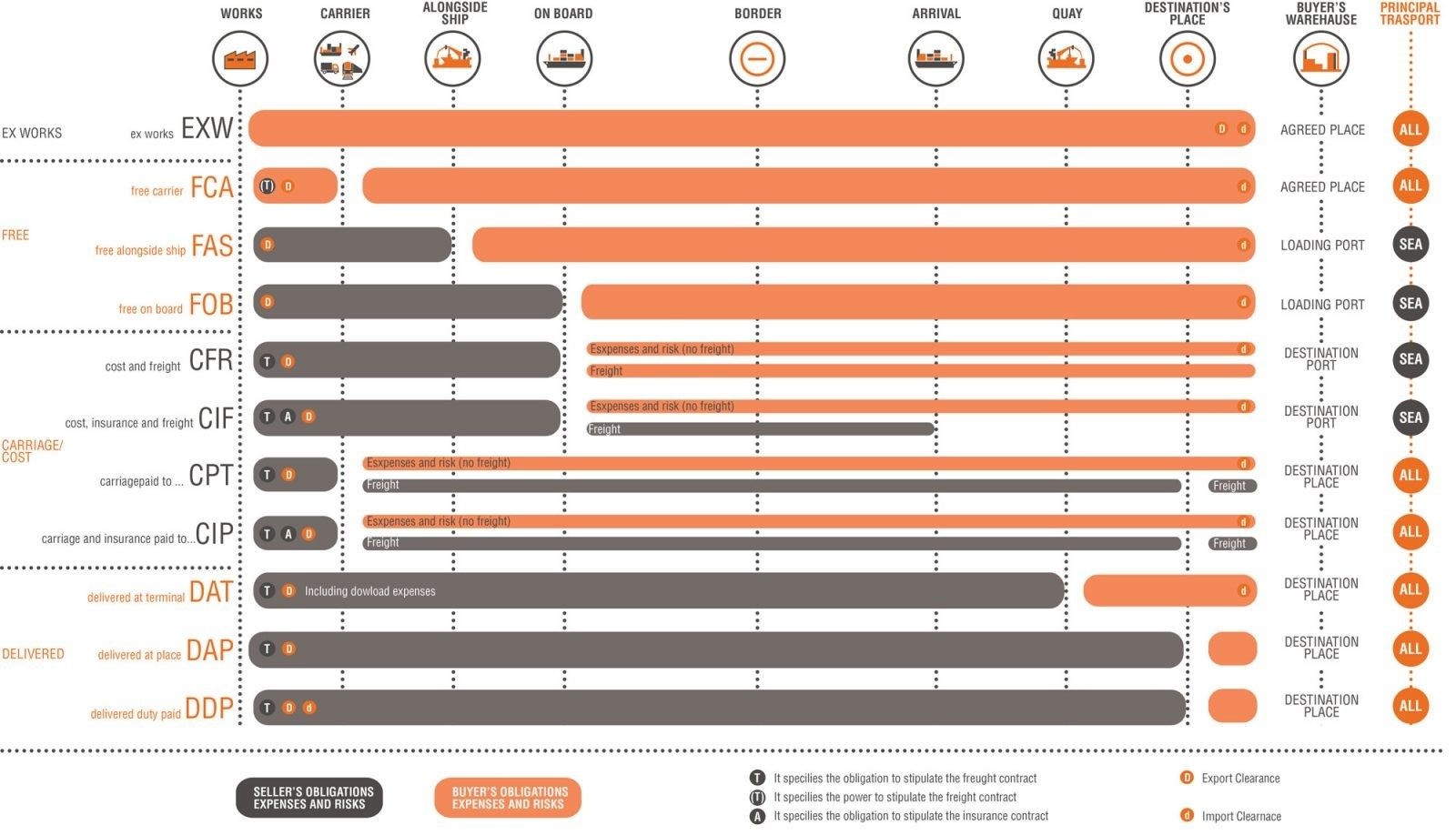Incoterms (International Commercial Terms) are pre-defined and coded terms, published by the International Chamber of Commerce (ICC) used to define the terms of payment in the buying and selling of goods.
The Incoterms 2010 are only the latest set of rules issued by the ICC that update, complete and replace an exhaustive list of all previous publications.

The ICC has also specified:
Terms used for all modes of transport: EXW, FCA, CPT, CIP, DAT, DAP, DDP.
Terms suitable only for sea transport: FAS, FOB, CFR, CIF.
We can divide the Incoterms 2010 into the following groups according to the initial letter of the acronym, the terms belonging to the same group share similar characteristics.
Group E contains only one term: EXW (Ex Works).
It is also indicated in the specific transport with Ex Mine, Ex Mill, Ex Plantation, Ex Factory, Ex-Warehouse. The main obligations are responsibility of the buyer.
Group F contains three terms:
FCA (Free Carrier)
FAS (Free Along Side)
FOB (Free on Board)
A common element of these terms is the main transport that is paid by the Purchaser which, together with this responsibility, it also assumes the associated risks from the place and the time when the goods are delivered to the Carrier by him (Purchaser) appointed.
Group C contains 4 terms:
CFR (Cost and Freight)
CPT (Carriage Paid To)
CIF (Cost Insurance and Freight)
CIP (Carriage, Insurance Paid to)
The letter C has two different meanings: Carriage or Cost. All these terms give the seller the responsibility but not the risk of the transport of goods in the place of destiny clarified. Which means that there will be a tariff point up to which the seller bears the cost of transportation and a damage point up to which the seller bears the risk of damage to the goods.
Group D contains 3 terms:
DAP (Delivered At Place)
DAT (Delivered At Terminal)
DDP (Delivered Duty Paid)
It is the group of maximum obligation for the seller, who takes on the risks and costs of delivery until destination.





